
On December 24, 2022, the satellite session of Big Vision at the 23rd Chinese Retinal Disease Forum and International Retina Symposium was successfully held online. The conference invited Professor Xu Xun from Shanghai First People’s Hospital, Professor Wei Wenbin from Beijing Tongren Hospital, and Professor Song Zongming from Henan Provincial Eye Hospital as keynote speakers to share the application and prospects of AI OCT in the diagnosis and treatment of retinal diseases and systemic chronic disease management.
Professor Xu Xun from Shanghai First People’s Hospital.
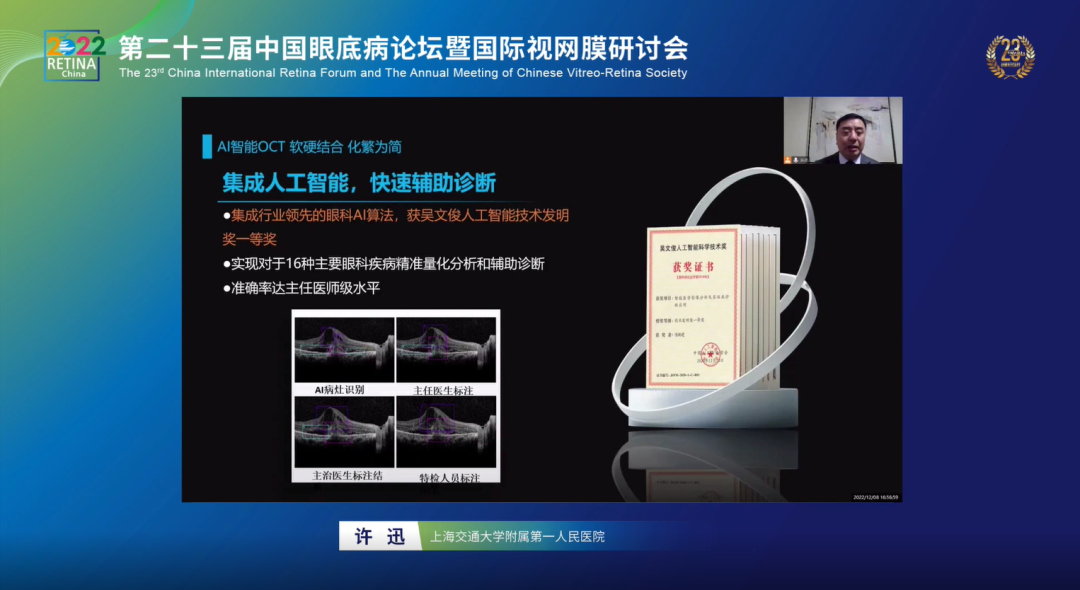
Professor Xu Xun shared the current situation and challenges of retinal diseases in China, elaborated on the significance of retinal disease screening, and emphasized the importance of using AI OCT in screening. According to Professor Xu, Big Vision’s fully automatic artificial intelligence OCT BV1000S integrates the industry-leading multimodal ophthalmic imaging assisted diagnosis system, which can accurately quantify and analyze more than ten kinds of ophthalmic diseases and assist in diagnosis. It can address the shortage of professional examiners in grassroots hospitals and is very promising for retinal disease screening with the help of AI OCT. Professor Xu hopes that the Big Vision’s fully automatic artificial intelligence OCT BV1000S can be further promoted and popularized in grassroots hospitals and community screenings.
Professor Wei Wenbin from Beijing Tongren Hospital.
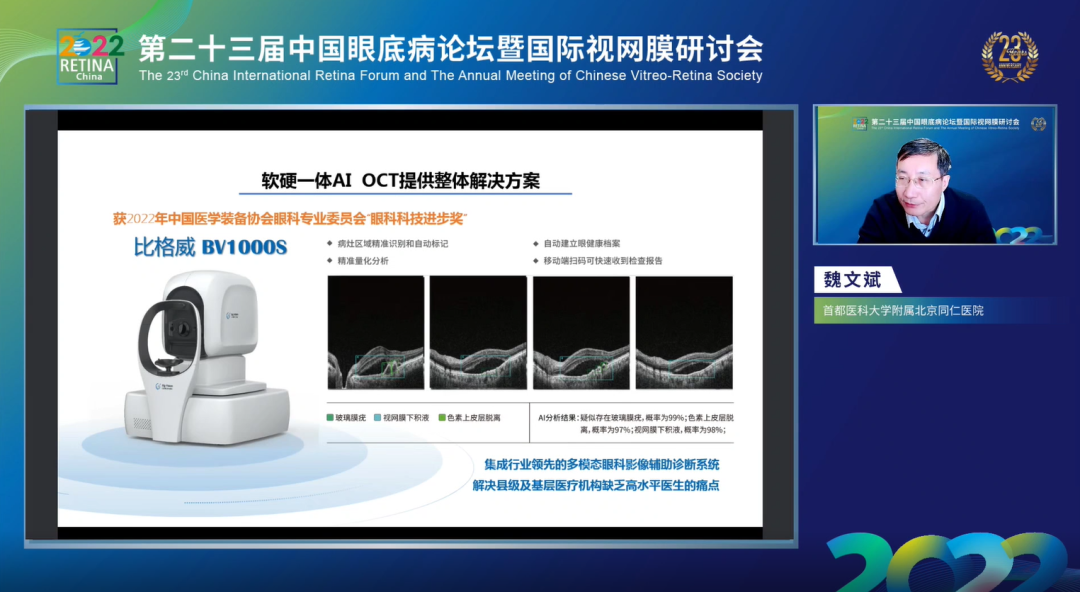
In his keynote speech, Professor Wei Wenbin stated that the eyes are windows reflecting the overall health status of the body. AI OCT is not only significant in retinal disease screening but also plays an active role in systemic health warning. With the help of AI OCT, some diseases, such as cardiovascular diseases, cognitive impairment, and neurodegenerative diseases, can be detected early through early manifestations in the eyes, providing a good biological marker. Professor Wei praised Big Vision for its great integration of artificial intelligence and OCT, and the new generation of fully automatic artificial intelligence OCT BV1000S is very helpful in establishing an eye and systemic disease warning and personalized health service system.
Professor Song Zongming from Henan Provincial Eye Hospital.
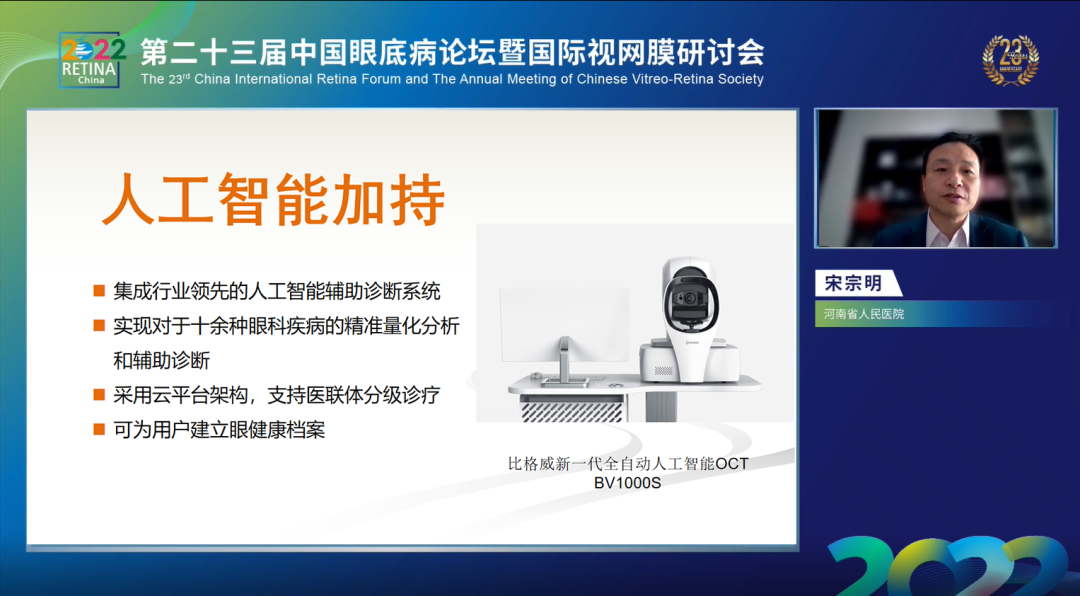
Professor Song Zongming gave a presentation on “The Application of Fully Automatic Artificial Intelligence OCT in the Diagnosis and Treatment of Macular Diseases” and shared the role and value of AI OCT in macular disease diagnosis and treatment. Professor Song pointed out that OCT examination has high sensitivity and accuracy for macular hole. Big Vision’s new generation of fully automatic artificial intelligence OCT BV1000S has faster scanning speed, up to 80,000 times/second; better image quality, clear layered structure and rich details; more beautiful appearance and smaller size, easy for screening and transportation; more accurate AI diagnosis, the product integrates advanced AI algorithms, can accurately identify and automatically annotate disease lesions, provide more valuable basis for doctors to develop treatment plans, and bring customers a better experience.
Professors Zhang Ming and Chen Haoyu, the hosts of the conference, provided excellent comments and summaries for the presentations of the experts. The reality is that the total amount of high-quality ophthalmic medical resources in China is relatively insufficient and the distribution is uneven. It is of great significance to fully utilize emerging technologies such as artificial intelligence to carry out the application of artificial intelligence in eye disease prevention, diagnosis and follow-up, and improve the early screening ability of eye diseases. It is hoped that Big Vision’s artificial intelligence OCT can make more positive contributions to the promotion of universal eye health.


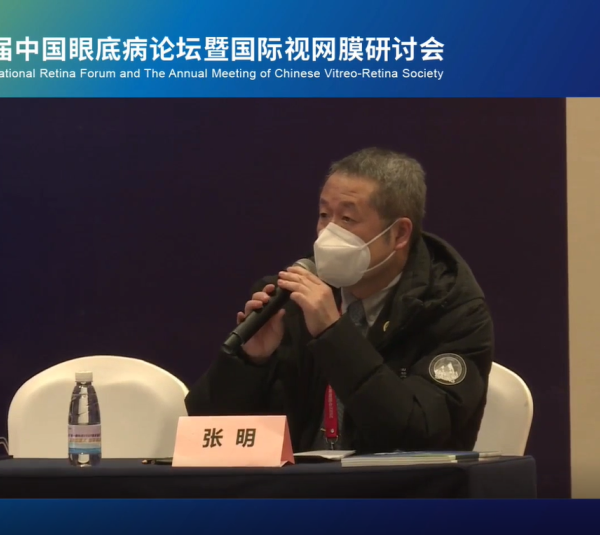
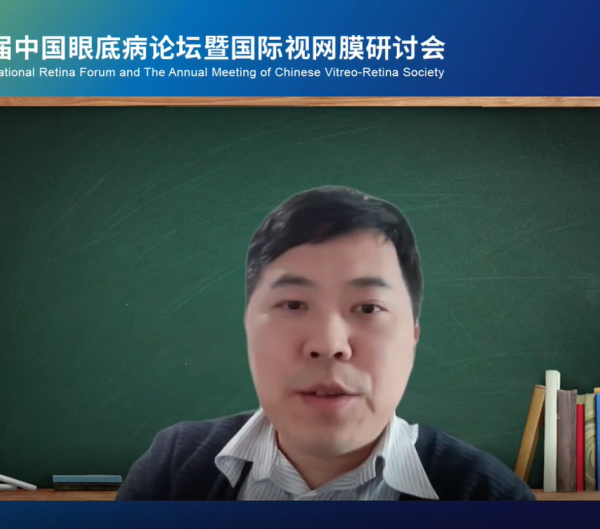



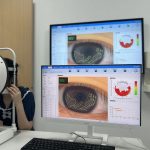



No comments yet.